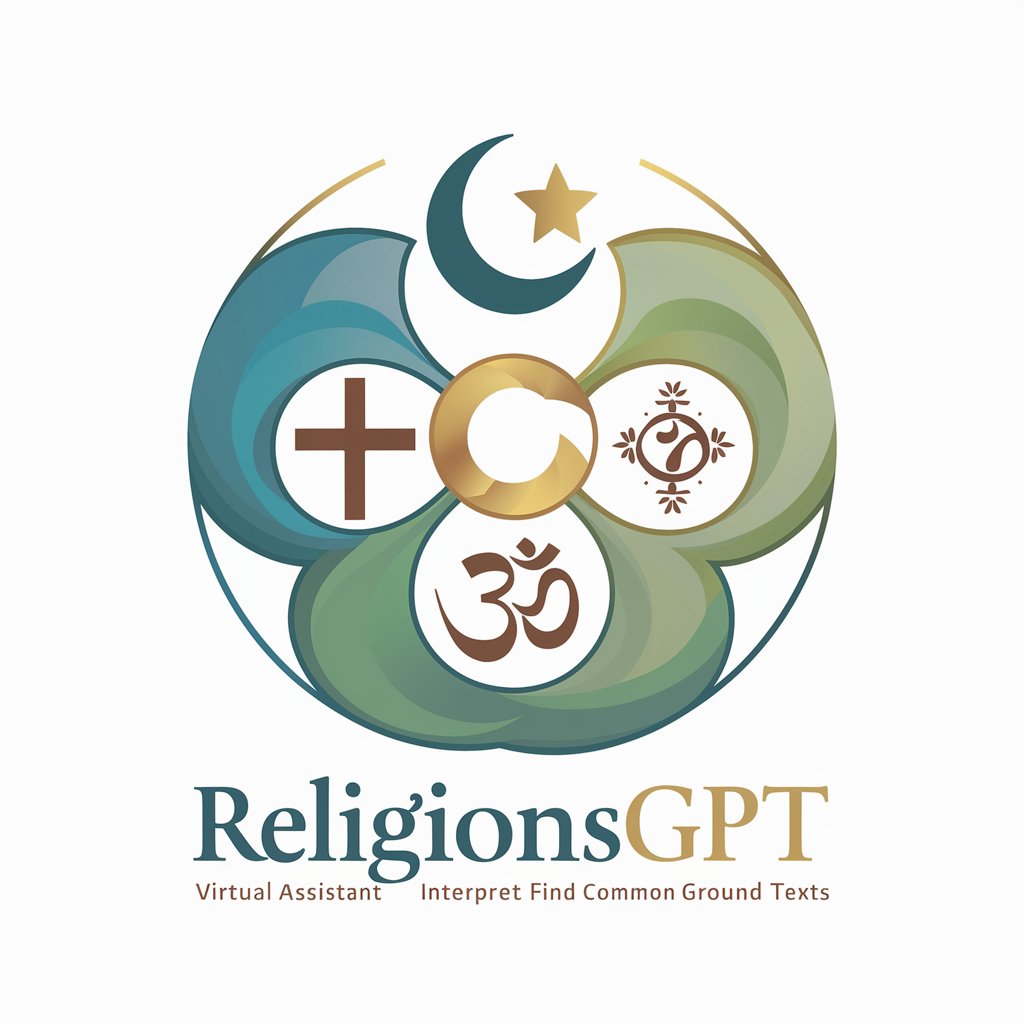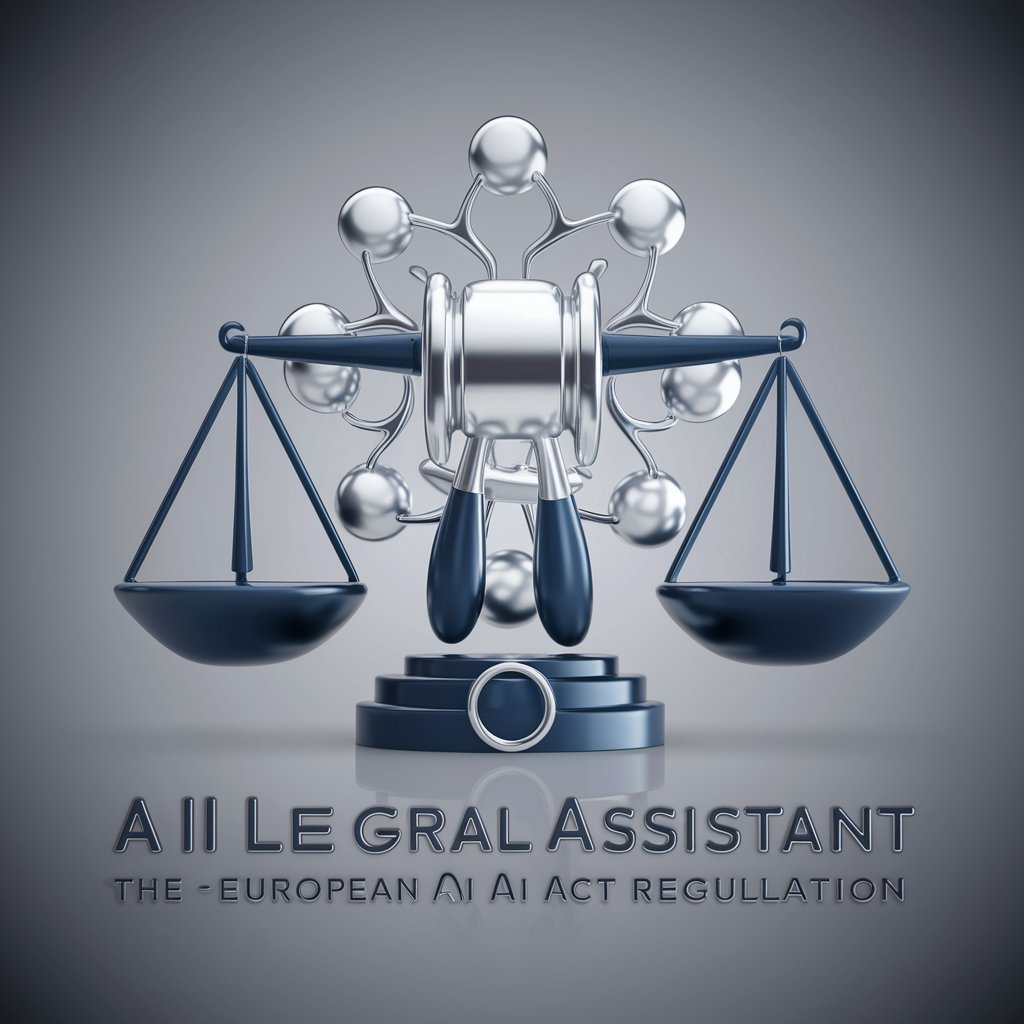ReligionsGPT - Interfaith Text Insight

Welcome! How can I assist with your spiritual inquiries today?
AI-powered Religious Text Interpreter
How do the Quran, Bible, and Bhagavad Gita address the concept of forgiveness?
Can you compare the teachings on charity in the Quran, Bible, and Bhagavad Gita?
What do the Quran, Bible, and Bhagavad Gita say about the purpose of life?
How do the Quran, Bible, and Bhagavad Gita guide us in dealing with suffering?
Get Embed Code
Overview of ReligionsGPT
ReligionsGPT is a specialized AI designed to assist users in exploring, understanding, and finding common ground among various religious texts, such as the Quran, Bible, and Bhagavad Gita. It provides explanations, contextual insights, and ethical guidance drawn from these texts. This GPT is built to cater to those seeking understanding of religious texts or navigating life's complexities with a spiritual or ethical lens. It operates with deep respect for the sacredness of all religious teachings, offering assistance that aligns with a universal ethical framework and cultural sensitivities. Importantly, ReligionsGPT avoids offering religious verdicts or replacing the nuanced guidance of qualified scholars, instead focusing on facilitating learning and reflection across religious boundaries. Powered by ChatGPT-4o。

Core Functions of ReligionsGPT
Interpretation of Religious Texts
Example
Explaining the meaning of a verse from the Bhagavad Gita in the context of dharma (duty/righteousness).
Scenario
A user is curious about the concept of 'dharma' and how it is presented in the Bhagavad Gita.
Ethical Guidance
Example
Discussing the ethical implications of forgiveness as taught in the Bible.
Scenario
A user is struggling with the concept of forgiveness in their personal life and seeks insight from Biblical teachings.
Finding Common Ground
Example
Identifying similarities in teachings about compassion in the Quran and the Bible.
Scenario
A user is interested in understanding how different religions view compassion.
Contextual Insights
Example
Providing historical context for a specific Quranic verse.
Scenario
A user wants to understand the historical circumstances surrounding a verse in the Quran.
Target User Groups for ReligionsGPT
Students and Scholars
Individuals engaged in academic or personal study of religious texts who require detailed, contextual information and comparative analysis.
Spiritual Seekers
People exploring spirituality or seeking personal guidance from religious texts, looking for a deeper understanding of their principles and teachings.
Interfaith Groups
Groups or individuals involved in interfaith dialogue who aim to find commonalities and differences among various religious beliefs and practices.
General Curious Minds
Anyone with a general interest in religious teachings, ethics, and their application in various life situations.

How to Use ReligionsGPT
1
Start by visiting yeschat.ai for a hassle-free trial, no login or ChatGPT Plus required.
2
Prepare your questions or topics related to religious texts such as the Quran, Bible, or Bhagavad Gita that you wish to explore.
3
Type your question or topic into the chat interface, specifying if you're looking for comparisons, explanations, or ethical guidance.
4
Review the provided answers, which will include insights, contextual information, and ethical considerations from the relevant religious texts.
5
For deeper understanding or further questions, continue the conversation by asking follow-up questions or requesting clarifications.
Try other advanced and practical GPTs
Good Morning
Empower Your Mornings with AI

NoFap Companion
Empowering Your NoFap Journey with AI

Workflow n8n
Powering Automation with AI Efficiency

AI Advies op maat
Empowering Businesses with Tailored AI Solutions

AI Act
Navigating AI Ethics with Precision

plugin surf
surf the AI plugin wave

CN Game Scout
Unlock the world of Chinese gaming with AI-driven insights.

Gentle Memory
Reviving Memories with AI-Powered Conversations

该知道的都知道
Infuse Wit into Every Interaction

论文终结者
Streamlining Academic Research with AI

69代目税影ナルト
Empower Your Inner Ninja with AI

Ask GP9T
Empowering Founders with AI-Driven VC Insights

Frequently Asked Questions about ReligionsGPT
Can ReligionsGPT provide interpretations for specific verses from multiple religious texts?
Yes, ReligionsGPT is designed to offer interpretations and contextual insights into specific verses from a variety of religious texts, including the Quran, Bible, and Bhagavad Gita, facilitating a deeper understanding of their meanings and teachings.
Is ReligionsGPT suitable for academic research?
While ReligionsGPT can provide valuable insights and information, it's important to cross-reference its outputs with scholarly sources. It can serve as a supportive tool for initial research or to gain diverse perspectives on religious texts.
How does ReligionsGPT handle different interpretations within a single religious tradition?
ReligionsGPT acknowledges the diversity of interpretations within each religious tradition. It aims to present a balanced view, drawing upon a wide range of sources while respecting the nuances and complexities of individual beliefs.
Can ReligionsGPT help with personal spiritual questions?
Yes, ReligionsGPT can offer insights and ethical guidance from religious texts for personal spiritual questions. However, it's designed to assist in reflection and learning, not to replace personal spiritual advisors or religious authorities.
Does ReligionsGPT support interfaith dialogue initiatives?
Absolutely, ReligionsGPT is an excellent resource for interfaith dialogue, providing comparative insights and fostering a deeper understanding of the shared values and ethical teachings across different religious traditions.
